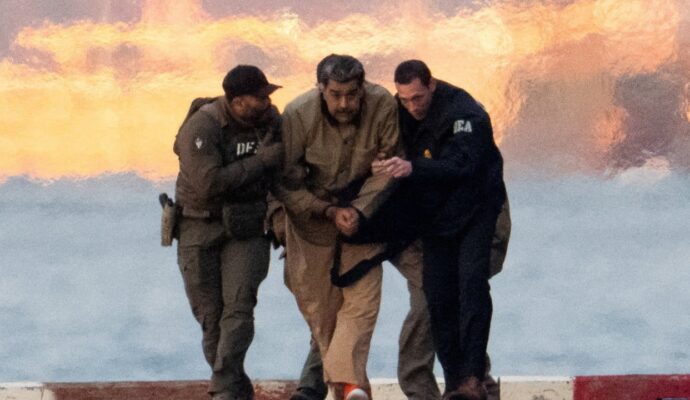
Jonathan Powell will appear before parliament for the first time amid questions about his role in the collapse of a trial of two Britons accused of spying for China.
Keir Starmer’s national security adviser is due to be quizzed by senior parliamentarians at a private hearing of the joint committee on the national security strategy in the coming weeks.
Powell’s appearance will mark the end of a year-long standoff between the committee and ministers, who refused for months to make him available for scrutiny before parliament. The prime minister’s spokesperson said on Monday that Powell “takes his accountability responsibilities very seriously”.
The committee, chaired by the Labour MP Matt Western, is in discussions with officials over the date of the hearing. It is made up of several select committee chairs such as Emily Thornberry, Sarah Champion and Liam Byrne and peers including the former cabinet secretary Mark Sedwill and former David Cameron adviser Kate Fall.
Powell is likely to face questions about the abandonment of a major Chinese spying case as well as the government’s approach to national security more broadly.
Separately the intelligence and security committee, which is chaired by Labour peer Kevan Jones and scrutinises the operation of the UK’s security agencies, expects to receive information about the case as part of its regular work and will examine if further investigation is required.
The trial of Christopher Cash, a former parliamentary aide, and Christopher Berry was due to begin this month but was suddenly dropped by the Crown Prosecution Service on 15 September. Both men denied the charges. Prosecutors said they could not proceed because the evidential standard was “no longer met”.
Downing Street strongly denied suggestions that government interference was behind this move on Monday. “The suggestion that the government withheld evidence, withdrew witnesses, or restricted the ability of witnesses to draw on particular bits of evidence are all untrue,” the prime minister’s political spokesperson said.
Powell is facing questions about his role after the Sunday Times reported that the CPS withdrew charges days after senior Whitehall officials, including Powell and the Foreign Office’s top civil servant, Oliver Robbins, met to discuss the trial.
In order to prove the case under the Official Secrets Act, prosecutors would have had to show the defendants were acting for an “enemy”. Powell reportedly told the meeting that the government’s evidence would be based on this year’s national security strategy, which does not use that term to describe China but instead called it a “geo-strategic challenge”, so it could not be used in court.
Government sources have pointed out that the Conservatives did not describe China as a threat in their strategy either.
Ministers including Shabana Mahmood, the home secretary, have expressed their disappointment at the collapse of the case. Lindsay Hoyle, the Commons speaker, has said the development leaves MPs vulnerable to espionage and is considering bringing a private prosecution.
The government had resisted requests for Powell to appear before parliament for months, arguing it would not be appropriate because he is a special adviser rather than a civil servant.
In response, Western accused ministers of “using a quirk of his appointment as a special adviser” to “erode democratic norms”, and said Powell was the first national security adviser not to appear before the committee since the role was created in 2010.
Powell has emerged as one of the most important figures shaping foreign policy under Starmer, and is referred to by some in Whitehall as the de facto foreign secretary. He is heavily involved in managing relations between the UK and US.
Before his appointment as national security adviser, he was tasked with negotiating the sovereignty dispute between the UK and Mauritius over the Chagos Islands. A veteran of the New Labour years, he served as chief of staff for the entirety of Tony Blair’s premiership and helped to negotiate the Good Friday agreement.

